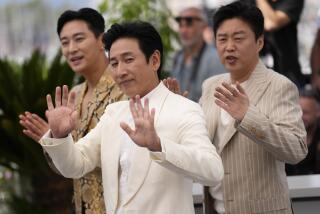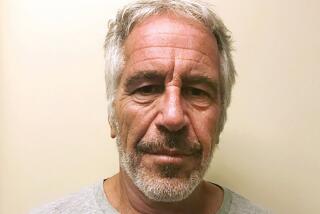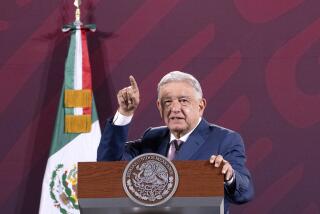New law is urged on war powers
A bipartisan commission Tuesday called for a new law to require the next president to ask Congress for formal approval of any decision to go to war and force the White House to consult Congress once a war is underway.
The panel, led by former secretaries of State James A. Baker III and Warren Christopher, determined that the 1973 War Powers Act had failed and should be replaced. It was passed during the Vietnam War to limit the president’s power to launch hostilities, but presidents of both parties have argued it is unconstitutional.
“The fundamental purpose of our statute is to ensure that the president consults with Congress before taking the nation to war,” Christopher said at a news conference with Baker and other panel members.
The proposed law would require the president to notify Congress of any plans for combat lasting, or expected to last, longer than one week and require Congress to vote on a resolution of approval within 30 days of being notified. Military actions shorter than one week and covert operations would be exempt. (Covert operations are reviewed by Congress in secret, under a different law.)
The 1973 War Powers Act forbids a president to commit troops to combat for more than 60 days without formal authorization from Congress, but it does not require Congress to vote on the issue. That loophole has allowed presidents and Congress to ignore the law when they choose.
In 1999, for example, President Clinton launched an air war against Serbia to force its withdrawal from Kosovo but never sought formal authorization from Congress under the War Powers Act.
The proposed law would not have stopped President Bush from going to war in Iraq, members of the panel said, because he won approval from Congress in 2002 to use military force against Baghdad.
“Congress was in on the takeoff,” Baker said.
But it would have forced Bush to consult formally with Congress more frequently after the war began.
Baker acknowledged that the proposal would limit a president’s freedom to act, but noted that it also would impose a new burden on Congress. “No longer can Congress hide in the weeds and take credit if [a military action] goes well, but criticize if it goes badly,” he said in an interview.
Baker, a Republican, and Christopher, a Democrat, said they had sought the support of the two major presidential candidates, Sens. Barack Obama (D-Ill.) and John McCain (R-Ariz.) for the proposal. As a practical matter, Baker said, it would be difficult to pass a law on presidential power without the president’s support.
But neither candidate has endorsed the idea. Instead, their aides deployed ambiguous statements of general praise.
McCain aide Randy Scheunemann called the proposal “interesting” and said: “Sen. McCain has long held that any president should work cooperatively with Congress as much as possible.”
Obama spokeswoman Jen Psaki said: “Sen. Obama commends this bipartisan study for advocating that the president consult Congress more closely on issues of critical national importance, like the use of military force.”
Members of the panel acknowledged that their proposal did not address every potential problem over war powers.
If a president starts a war with one goal, for example, and later changes the goal -- as critics say Bush has done in Iraq -- the commission’s plan does not require a new authorization.
“At that point, it’s basically a matter of congressional will,” Baker said.
But they said they hoped their proposal, if passed, would encourage future presidents and congressional leaders to consult each other more often on decisions of war and peace.
“The great virtue of our proposal is that it requires a president to consult,” said former Rep. Lee H. Hamilton (D-Ind.), another member of the panel, which was sponsored by the Miller Center of Public Affairs at the University of Virginia.
Baker and Christopher noted that the effort was the first time they had worked together since the 2000 presidential election recount in Florida, where Baker led the forces favoring Republican candidate George W. Bush -- the eventual winner -- and Christopher ran the legal campaign for Democratic candidate Al Gore.
--
Times staff writers Julian E. Barnes, Maeve Reston and Louise Roug contributed to this report.
More to Read
Start your day right
Sign up for Essential California for news, features and recommendations from the L.A. Times and beyond in your inbox six days a week.
You may occasionally receive promotional content from the Los Angeles Times.






